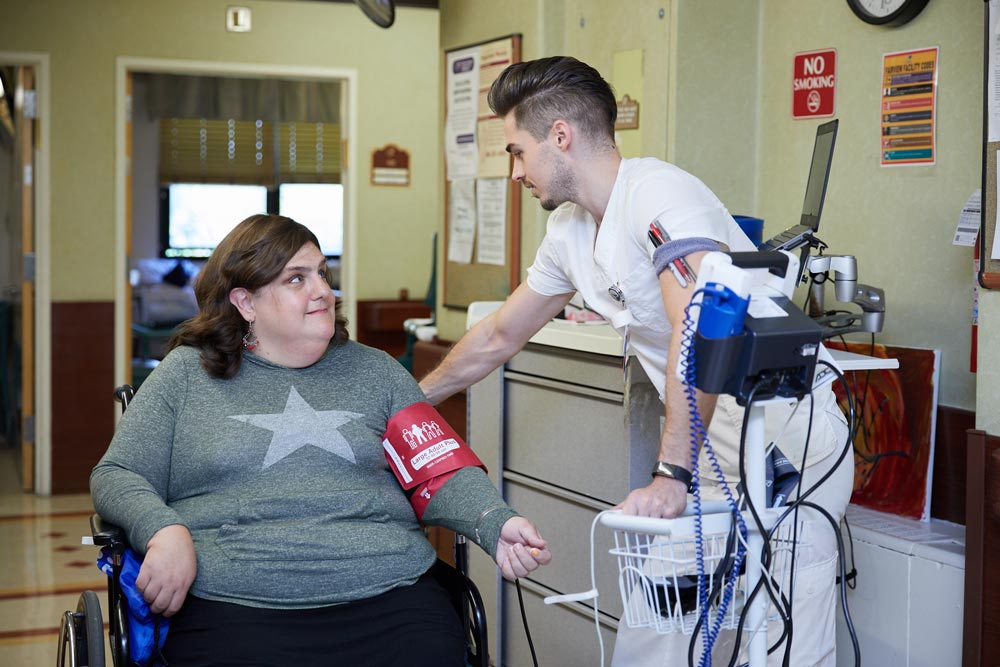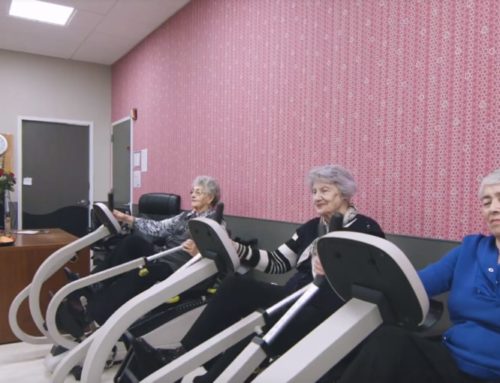How Do You Know When Dementia Starts? 4 Warning Signs
According to the World Health Organization, about 55 million people have dementia worldwide. The syndrome causes issues with mental, behavioral, and physical functions, but it doesn’t happen all at once. The symptoms progress slowly and vary from person to person. If you’re concerned you or someone you know is at risk, pay attention to the most common dementia warning signs. The sooner you address them, the better.
For those who have already received a diagnosis, dementia care may be recommended. The treatment includes enhanced communication when discussing needs and tailoring the program to match. Physical therapy, occupational therapy, cognitive therapy, and other treatments ensure each client’s physical and emotional well-being is taken care of. For more information about dementia symptoms and what to watch for, check out the following sections.

Dementia Warning Signs
As dementia progresses, several signs appear, though not everyone experiences identical symptoms. Please note that anyone feeling very tired can experience some of them occasionally. See the following 4 signs that can be mild at the beginning.
- Problems with words – Language issues are one of the most common early symptoms of dementia. Individuals may have difficulty remembering a word or two at the beginning and resort to substituting the wrong ones. They may also lose their train of thought or repeat themselves. Understanding others is another frequent issue those with dementia face, preventing them from carrying on conversations.
- Memory loss – Another of the early dementia warning signs is memory loss. Individuals may forget important events, appointments, dates, names, or phone numbers. They may also repeat themselves after forgetting discussions. Even facts or details may be forgotten soon after learning them. Sometimes those lost memories return later, while others are never remembered. Relying on notes, reminders, and family members is often required.
- Challenges with tasks – Daily tasks, including cleaning, cooking, creating a grocery list, or going to familiar locations, become difficult to accomplish with dementia. Even remembering how to play favorite games is no longer easy since the rules are hard to remember. Assistance may be required to ensure tasks are getting done properly.
- Confusion with time and place – Losing track of time, the date, and the season is a warning sign of dementia to watch for. Other confusion issues include forgetting why you entered a room, what street you’re on, or how you got to certain places. Individuals with this condition may even forget how to get to familiar areas, including their own home. Thinking they are in the past is another aspect of the illness, requiring reminders of what year it is.
Several other medical issues feature similar symptoms, including depression, dehydration, infections, nutritional deficiencies, heart problems, and medication reactions. It’s best not to assume the above signs are caused by dementia. Speak to your doctor about any concerns or issues you’re experiencing for a proper diagnosis.
Diagnosing Dementia
Diagnosing dementia isn’t a one-step process, requiring a medical assessment from a trained professional. Your doctor will look into your medical history, including your family history, medications you’re taking, and other areas of concern. They may also perform a physical examination, laboratory tests, cognitive tests, brain imaging, and a psychiatric assessment. The results of those tests determine if those warning signs are from dementia or related to another medical issue.
Resources:
https://www.ncbi.nlm.nih.gov/pmc/articles/PMC9081392/
https://www.scie.org.uk/dementia/symptoms/diagnosis/what-else.asp#:~:text=Thyroid%2C%20kidney%2C%20liver%2C%20heart,can%20produce%20dementia%2Dlike%20symptoms.
https://www.alz.org/alzheimers-dementia/10_signs
https://www.betterhealth.vic.gov.au/health/conditionsandtreatments/dementia-early-signs
https://www.mayoclinic.org/diseases-conditions/dementia/symptoms-causes/syc-20352013
This article contains informational and educational materials and does not replace health or medical advice. For questions or concerns regarding your medical condition or health objectives, speak to a qualified physician or healthcare provider.






Leave A Comment